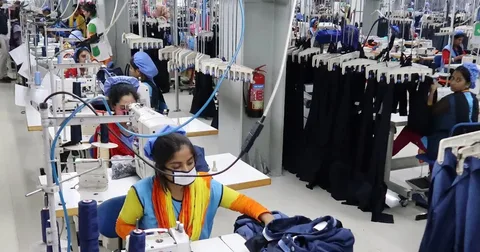As the fashion industry faces growing concerns about its environmental impact, sustainable clothing manufacturers are stepping up to lead the charge toward a more responsible future. In response to climate change, resource depletion, and social responsibility, these manufacturers are revolutionizing the way clothing is produced, offering consumers stylish, eco-friendly options that help reduce the fashion industry’s carbon footprint. The shift to sustainable manufacturing practices is no longer a trend—it’s becoming a necessity for the survival of the planet and the future of fashion.
The Importance of Sustainable Fashion
The fashion industry has long been one of the largest contributors to environmental pollution, producing significant waste, consuming water at alarming rates, and relying on harmful chemicals. Traditional manufacturing processes often result in textiles that are not biodegradable and contribute to microplastic pollution. In recent years, however, there has been a concerted effort to shift toward more sustainable practices.
Sustainable clothing manufacturers focus on eco-friendly materials, ethical labor practices, and innovative production processes that minimize environmental damage. These manufacturers aim to create a circular economy for fashion, where products are made to last, reused, and ultimately recycled.
How Sustainable Clothing Manufacturers Are Changing the Industry
Sustainable clothing manufacturers are incorporating a variety of innovative techniques to reduce their environmental footprint. Here are a few of the key strategies they are using:
1. Eco-Friendly Materials
One of the most notable changes is the use of eco-friendly materials. Sustainable clothing manufacturers often turn to organic cotton, hemp, bamboo, and recycled fabrics, reducing the need for conventional cotton, which is a water-intensive crop. Recycled polyester and other fabrics made from post-consumer waste, like plastic bottles, are becoming common materials in fashion lines. These materials are not only better for the environment, but they also offer consumers more ethical options that are free from harmful chemicals.
2. Ethical Production Practices
Another key aspect of sustainable fashion is ensuring that the people involved in the production process are treated ethically. Sustainable clothing manufacturers prioritize fair wages, safe working conditions, and transparency throughout the supply chain. By promoting ethical labor practices, they help build a fashion industry that values human rights as much as it values profit.
3. Innovation in Waste Reduction
Waste reduction is a crucial factor in sustainable manufacturing. Many sustainable clothing manufacturers are adopting zero-waste design principles, using every scrap of fabric to create functional and stylish garments. Brands are also employing technologies like 3D knitting and digital printing, which reduce textile waste and energy consumption.
The Future of Fashion: A Sustainable Revolution
The rise of sustainable clothing manufacturers signifies a pivotal moment for the fashion industry. As consumer awareness grows and demand for eco-friendly alternatives increases, the future of fashion is being reshaped by those who prioritize sustainability over fast fashion. Companies that embrace sustainability are not only helping to preserve the planet but are also driving innovation and challenging traditional industry norms.
Moreover, with the fashion industry being one of the largest contributors to global greenhouse gas emissions, it’s clear that the shift toward sustainability is essential to achieving global climate goals. Sustainable clothing manufacturers are proving that fashion can be both stylish and responsible, paving the way for a brighter, greener future.
Conclusion
Sustainable clothing manufacturers are undoubtedly leading the future of fashion. By innovating with eco-friendly materials, promoting ethical labor practices, and reducing waste, they are changing the way we think about clothing and consumption. As the demand for sustainable fashion continues to grow, these manufacturers are setting the standard for the entire industry, proving that fashion can be both beautiful and sustainable.


